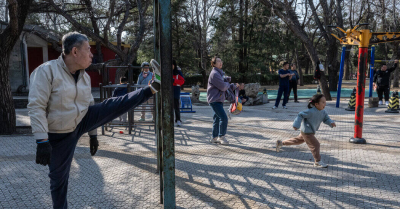纽约时报中文网 - 英文原版-英Chinas Young People Are Giving Up on Saving for Retirement
April 8, 2024 2 min 231 words
这篇报道揭示了中国年轻人对退休储蓄的态度转变,这是值得关注的社会现象。然而,这可能反映出更深层次的问题,即中国年轻人对未来的不确定感和生活压力的增加。他们可能更倾向于满足当前的生活需求,而非长远的规划。这可能会对社会保障体系带来压力,因为退休金的储备是社会保障的重要组成部分。这个问题需要政策制定者的高度关注,以寻求平衡年轻人的当前需求和未来的退休保障的解决方案。同时,也需要提高年轻人的财务规划意识,让他们意识到储蓄的重要性。
China wants young people to put money away for retirement. Tao Swift, an unemployed 30-year-old, is not interested in hearing it.
“Retire with a pension?” he asked. “I don’t hold much hope that I can definitely get my hands on it.”
Mr. Tao, who lives in the southern city of Chengdu, is not alone in thinking this way. On social media forums and among friends, young people are questioning whether to save for old age. Some are opting out, citing the shortage of jobs, low pay and their ambivalence about the future.
Their skepticism betrays the enormous challenge for China’s leaders. Over less than three decades, the country has changed from a young society to an aging one. Seven straight years of plummeting births are pushing up the day when there will be fewer people working than retirees.
The fast-changing demographic profile is putting tremendous strain on China’s existing underfunded pension system. An average retirement age of 54, among the lowest in the world, has made this stress more acute.
A grinding economic slowdown, the worst since China embraced capitalism four decades ago, is leaving many people out of work or with little room to put money aside.

